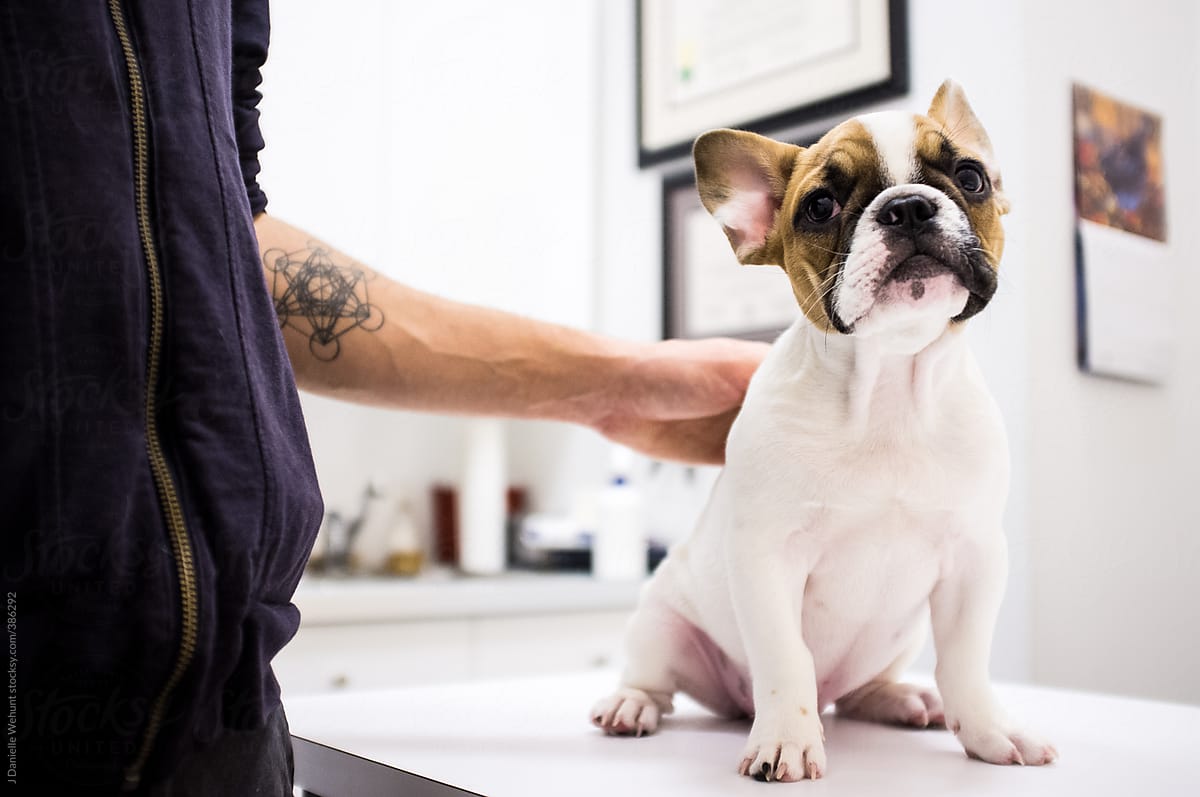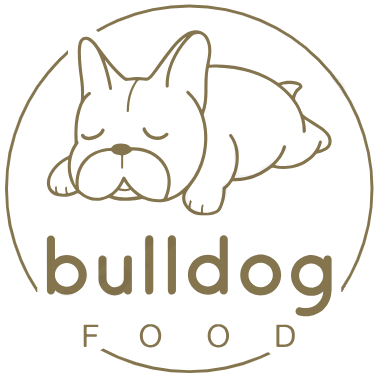French Bulldogs have captured the hearts of dog lovers worldwide with their charming personalities and adorable bat-like ears. However, beneath their lovable exterior lies a breed that faces numerous health challenges due to their unique physical characteristics. As a potential or current Frenchie owner, understanding these French Bulldog health issues is crucial for providing the best care possible for your four-legged friend.
The Physical Blueprint: Why French Bulldogs Are Prone to Health Issues

French Bulldogs possess distinctive physical traits that, while making them undeniably cute, also predispose them to various health conditions:
- Brachycephalic (Flat) Face Structure: Their shortened skull and compressed facial bones result in narrowed airways and elongated soft palates. This anatomical feature directly impacts their breathing efficiency and makes them susceptible to respiratory distress.
- Large Head-to-Body Ratio: Their disproportionately large heads compared to their body size create challenges during birth and can affect their balance and movement. This characteristic particularly affects female Frenchies during pregnancy and delivery.
- Shortened Spine: The breed’s compact spine structure, combined with their stocky build, places additional stress on their vertebral disks. This compression increases their vulnerability to back problems and neurological issues.
- Prominent Eyes: Their eyes protrude more than other breeds due to their shallow eye sockets. This exposure makes them more susceptible to injuries and various eye conditions.
- Deep Skin Folds: The characteristic wrinkles, especially around their face and tail area, create warm, moist environments. These areas can become breeding grounds for bacteria and yeast if not properly maintained.
- Narrow Hips: Their hip structure, combined with their muscular build, can lead to mobility issues and increases the risk of hip dysplasia. This anatomical feature also contributes to breeding difficulties.
Common French Bulldog Health Issues
Each of those unique physical features we just discussed can manifest in specific health problems. Think of it like a blueprint that shows us exactly what we need to watch out for. By knowing these common health issues, you’ll be better equipped to spot early warning signs and get your furry friend the care they need before small problems become big ones:
Brachycephalic Airway Syndrome
The most prevalent health concern in French Bulldogs is Brachycephalic Airway Syndrome (BAS). This condition stems from their shortened facial structure, which results in narrowed nostrils, an elongated soft palate, and a compressed trachea. These anatomical features make it challenging for Frenchies to breathe normally, especially during exercise or in hot weather. Symptoms include noisy breathing, snoring, gagging, and in severe cases, collapse. Dogs with BAS often struggle to regulate their body temperature effectively, making them particularly vulnerable to heat stress. Treatment options range from medical management to surgical intervention, depending on the severity of the condition.
Hip Dysplasia
French Bulldogs frequently develop hip dysplasia, a condition where the hip joint doesn’t fit together properly, causing grinding instead of smooth movement. This genetic condition is exacerbated by their body structure and weight distribution. The first signs often appear between four and six months of age, though some dogs may not show symptoms until later in life. Affected dogs may show reluctance to exercise, difficulty rising, and a swaying gait. Pain and mobility issues can significantly impact quality of life. Management typically involves weight control, physical therapy, and in severe cases, surgical correction. Regular screening and maintaining a healthy weight are crucial preventive measures.
Intervertebral Disk Disease

The breed’s unique body structure, particularly their short, curved spine, makes them susceptible to Intervertebral Disk Disease (IVDD). This condition occurs when the cushioning disks between vertebrae deteriorate or herniate, potentially causing severe pain and neurological problems. French Bulldogs typically show signs between three and seven years of age. Symptoms can range from mild discomfort to complete paralysis, depending on the severity and location of the disk problem. Early intervention is crucial for successful treatment, which may include strict rest, medication, physical therapy, or surgery in severe cases.
Eye Problems
The prominent eyes and flat face of French Bulldogs make them prone to various ophthalmological issues. Cherry eye, where the third eyelid gland prolapses and becomes visible, is particularly common. They’re also susceptible to corneal ulcers, cataracts, and entropion (inward-rolling eyelids). These conditions can cause discomfort, vision impairment, and may require surgical correction. Regular eye examinations are essential for early detection and treatment. Keeping the facial folds clean and dry helps prevent infection and irritation around the eyes.
Allergies and Skin Issues
French Bulldogs have sensitive skin that’s prone to various dermatological conditions. Food allergies, environmental allergies, and contact dermatitis are common issues that can cause intense itching, redness, and skin infections. Their facial wrinkles require regular cleaning to prevent moisture accumulation and subsequent bacterial or yeast infections. Food allergies often manifest as gastrointestinal issues or skin problems, necessitating careful diet management. Environmental allergies may require ongoing medication and lifestyle modifications to keep symptoms under control.
Read more >> Best Food for French Bulldogs with Skin Allergies
Reproductive Difficulties
Female French Bulldogs frequently experience difficulties with natural breeding and delivery due to their narrow hips and large heads. Most pregnancies require careful monitoring and planned cesarean sections to ensure the safety of both mother and puppies. This anatomical challenge contributes to the breed’s relatively high breeding costs and emphasizes the importance of working with reputable breeders who prioritize health and proper medical care. Responsible breeding practices are essential for maintaining the health of both parent dogs and offspring.
Heart Problems
Cardiac issues, particularly heart murmurs and enlarged hearts, affect many French Bulldogs. The breed is predisposed to various congenital heart defects that may not become apparent until adulthood. Regular cardiac screenings can help detect problems early, allowing for proper management through medication and lifestyle adjustments. Symptoms of heart problems may include exercise intolerance, coughing, and lethargy. Maintaining a healthy weight and providing appropriate exercise are crucial for supporting cardiac health.
Daily Care Routines for Prevention

With all these potential health issues in mind, establishing a proper daily care routine is crucial for your Frenchie’s well-being. Our veterinarians suggest essential care practices that help prevent many of these health problems, keeping your French Bulldog happy and healthy:
Face and Skin Care
Daily cleaning of your Frenchie’s facial folds is essential to prevent bacterial and yeast infections. Use pet-safe wipes to gently clean between the folds, ensuring you dry them thoroughly afterward. Watch for any signs of redness, irritation, or unusual odors that might indicate an infection developing. Some Frenchies may need special products recommended by their vet to protect their sensitive skin.
Feeding and Hydration Management
Most people think choosing the best food for French Bulldogs is enough to keep them healthy, but it also depends on how you feed your furry friend. Rather than serving one large meal, break your Frenchie’s daily food allowance into smaller portions throughout the day. This practice helps prevent digestive issues and reduces the risk of bloat. Place food and water bowls at a slightly elevated position to minimize air swallowing during meals. While fresh water should always be available, monitor their intake to ensure they’re not drinking excessively, which could indicate an underlying health issue.
Exercise and Activity
Exercise needs careful management in French Bulldogs. Schedule short walks during cooler parts of the day, paying close attention to their breathing patterns. Mental stimulation is just as important as physical exercise – incorporate training sessions and puzzle toys into their daily routine. Avoid high-intensity activities that could put unnecessary stress on their joints and spine.
Environmental Controls
Creating the right environment is crucial for your Frenchie’s comfort and health. Maintain a moderate room temperature, using air conditioning during warmer months to prevent overheating. Provide comfortable raised beds to support good sleeping posture and ensure flooring offers adequate traction to prevent slipping, which could lead to joint injuries.
Regular Health Monitoring

Make daily health checks part of your routine. Pay attention to their breathing patterns, especially during rest. Keep track of their weight weekly, as maintaining a healthy weight is crucial for managing many health issues. Regular inspection of their ears and eyes can help catch potential problems early, and any changes in mobility or energy levels should be noted and discussed with your veterinarian.
Wrapping Up
Living with a French Bulldog comes with its unique challenges, but don’t let their health issues discourage you. While Frenchies need extra attention and care, they make incredible companions who fill our lives with joy and laughter.
By staying informed about potential health problems and being proactive with their care, you can help your furry friend live a happy, comfortable life. Remember, every Frenchie is different – get to know your dog’s normal patterns and don’t hesitate to reach out to your vet if something seems off. With proper care and attention, your French Bulldog can thrive despite their health challenges.

As an experienced dog foster and canine advocate, I have a special place in my heart for French Bulldogs. Their charming personalities and unique needs sparked my interest, leading me to specialize in Frenchie care. I’ve fostered over 200 Frenchies over the year, gaining deep insights into their dietary requirements and health concerns. This expertise drives my contributions to bestfoodforfrenchbulldog.dog, where I share practical advice on nutrition, care, and enrichment for these lovable flat-faced pups.
My articles aim to educate Frenchie owners on optimal feeding practices and health management. When not writing or fostering, I’m often cuddling with my own Frenchie, Biscuit, my inspiration for helping others care for this delightful breed.

